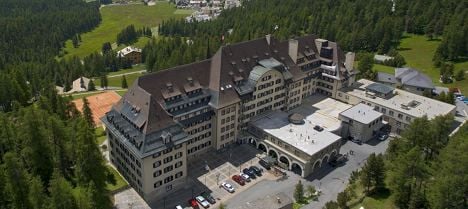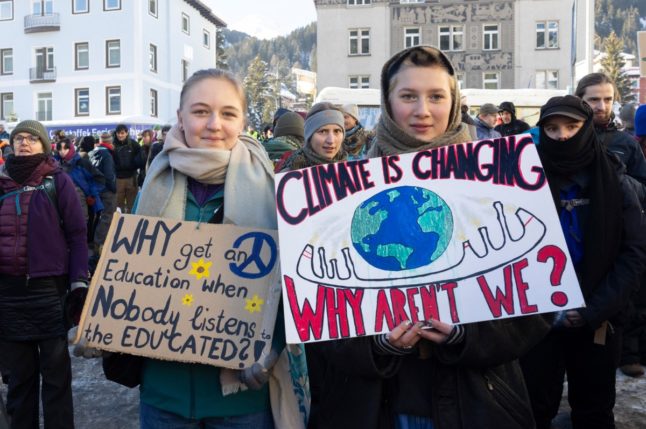Borghezio, of right-wing Italian party Lega Nord, was reportedly with another Italian as he attempted to infiltrate the luxury Suvretta House hotel where the conference is taking place.
Borghezio was blocked by guards from the security firm Securitas, who then called in the Swiss police. After having their identities checked, the two Italians were told they could not enter the building.
But according to the Italian news agency ANSA, Borghezio’s nose was bloodied during the altercation with the security guards. He told the agency he intends to press charges.
Swiss police spokesman Thomas Hobi said, “We don’t comment on the work of private security firms,” before adding that the police was not at liberty to even confirm the identities of the two men, because of data protection laws.
In a separate incident, two Swiss men were detained near the conference because “several suspicious items” were found in their car.
Hobi said that “for tactical reasons,” the police did not want to give any more information on the objects, but it is understood they initially suspected explosives. A security cordon was set up around the car while forensic specialists investigated the objects.
The items in the car were eventually judged to be harmless, though both men have been turned over to state police.
The annual Bilderberg meeting, which gathers over 100 of the world’s political and economic leaders, are usually secured by a tight police presence.
On what has been claimed as the official website – which is impossible to verify as it gives no contact information – the group is described as “a small, flexible, informal and off-the-record international forum in which different viewpoints can be expressed and mutual understanding enhanced.”
The Local/AFP/bk



 Please whitelist us to continue reading.
Please whitelist us to continue reading.
Member comments